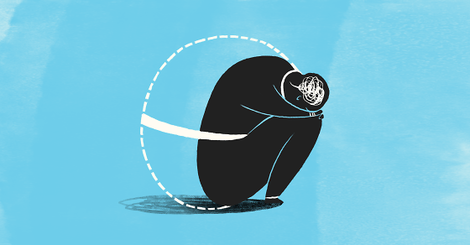Your podcast discovery platform
Curious minds select the most fascinating podcasts from around the world. Discover hand-piqd audio recommendations on your favorite topics.

piqer for: Global finds Health and Sanity Doing Good
Bangalore-based Rashmi Vasudeva's journalism has appeared in many Indian and international publications over the past decade. A features writer with over nine years of experience heading a health and fitness supplement in a mainstream Indian newspaper, her niche areas include health, wellness, fitness, food, nutrition and Indian classical Arts.
Her articles have appeared in various publications including Mint-Wall Street Journal, The Hindu, Deccan Herald (mainstream South Indian newspaper), Smart Life (Health magazine from the Malayala Manorama Group of publications), YourStory (India's media technology platform for entrepreneurs), Avantika (a noir arts and theatre magazine), ZDF (a German public broadcasting company) and others.
In 2006, she was awarded the British Print-Chevening scholarship to pursue a short-term course in new-age journalism at the University of Westminster, U.K. With a double Masters in Globalisation and Media Studies from Aarhus Universitet (Denmark), University of Amsterdam and Swansea University in Wales, U.K., she has also dabbled in academics, travel writing and socio-cultural studies. Mother to a frisky toddler, she hums 'wheels on the bus' while working and keeps a beady eye on the aforementioned toddler's antics.
Weight Loss Surgery: What 'Success Stories' Don't Tell You
Let us get this straight: bariatric surgery almost always works. A morbidly obese individual can lose nearly 50 per cent of their body fat even in the first few months after surgery. Which is why you often hear 'success stories' being bandied about; 'before' and 'after' tales that do the rounds in social media circles and newspaper adverts.
These so-called success stories mask doubts about how long the effect of surgery lasts. Also, since weight loss surgery permanently alters the physiology of the human stomach, no one talks authoritatively about the lifelong side-effects that the individual (whose anatomy has changed, not eating habits) may have to endure. Personal narratives abound, though, in weight loss surgery forums and blogs.
Which is why this analysis by Ed Cara gains currency. Beginning with a case history, he writes how after bariatric surgery, a 28-year-old woman had to battle years of depression and eating disorders. It took her several weeks in a rehab clinic and intense therapy to overcome the constant vomiting and feelings of loneliness.
Hers is not an isolated case. Since the time bariatric surgeries have become safer and less invasive, their popularity has surged worldwide. But there is an information black-hole when it comes to post-surgical mental health consequences. This article in scroll.in provides additional case histories — it talks at length about the emotional distress faced by patients, not to mention bone weakness, anaemia and heavy hair loss.
The article is recommended not to negate the positive factors about weight loss surgery (and there certainly are many), but to forcefully tell patients how crucial it is to seek before and after psychological care. Success must not make us sweep the complexities and the challenges individuals face post-surgery under the carpet. And this 'us' includes the doctors who advise about the surgery and the media that promulgates it.
